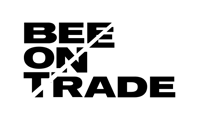Incoterms® are sales conditions that specify who is responsible for making arrangements for the payment and delivery of the goods from the time they leave the seller's (the manufacturer's) door until they reach the buyer's final destination
Using Incoterms®, one can designate who is in charge of handling and paying for the shipping of goods from point of origin to point of destination.
Using Incoterms®, one can designate who is in charge of handling and paying for the shipping of goods from point of origin to point of destination.
According to the International Chamber of Commerce, "Incoterms®" is shorthand for "International Commercial Terms."
Incoterms® do:
- Define the expenses and duties between the seller and the buyer using Incoterms®.
When it comes to the operational responsibilities and costs involved in the delivery of the buyer's goods, a seller and a buyer have a shared and generally accurate understanding thanks to Incoterms®.
- Identify the point at which the risk of cargo loss or damage passes from the buyer to the seller.
- Send instructions to the banks and other parties engaged in financing as well as the carriers, forwarders, customs brokers, and other parties involved in shipping your goods.
Incoterms® do not:
- Address ownership or the transfer of title.
A "retention of title" language should be included in the sales contract to specifically describe the passage of the title.
- Cover the cost.
Payment terms for the goods are arranged separately.
- Describe insurance.
The only terms that identify insurance as the seller's responsibility are CIF (Cost, Insurance, and Freight) and CIP (Carriage and Insurance Paid). In other words, do not specify who is accountable for this.
What Incoterms® are most frequently used?
FOB / FCA (Free Carrier) (Free on Board)
Delivering the items to the port or the buyer's designated location and putting them onto a ship or other form of transportation are the seller's responsibilities. They also bear all associated expenditures, such as terminal handling fees, export clearance fees, and observing security regulations. As soon as the goods pass the ship's railing in a FOB transaction, the risk is passed from the seller to the buyer.
Once the items are loaded onto the buyer's carriage, the risk is passed under FCA. Even though these phrases are sometimes used interchangeably, containerized marine freight is technically referred to by the FCA term.
Ex Works (EXW) The seller is in charge of making the goods accessible at the seller's location. From the seller's premises, the buyer is fully responsible for all costs and risks.
In their contracts, buyers and sellers generally refer to Incoterms® 2010 or Incoterms® 2020. There are variations!
As an illustration, consider the addition that Incoterms® 2020 has made to the FCA incoterm:
The parties can now agree, through the use of this 2020 Incoterm®, that the buyer must direct the carrier to issue to the seller, at the buyer's expense and risk, a transport document stating that the items have been loaded.
The seller is then required to give the buyer a copy of the transaction document. When the buyer assumes ownership of the package, Beeontrade will start managing it. At the designated port of shipping, the seller must transport the items alongside the buyer's vessel following the FAS (Free Alongside Ship) clause. From that point forward, the buyer is responsible for all costs and risks of loss or damage.
In contrast to prior Incoterms®, which required the buyer to obtain export clearance, the FAS term under Incoterms® 2020 calls on the seller to clear the products for export.
